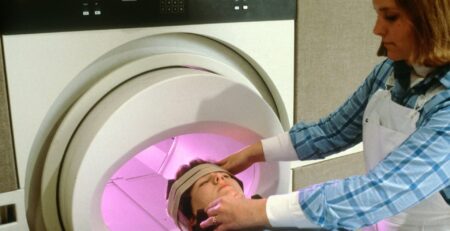Can Women Get a Hernia?
At Horizon Medical Center, we are dedicated to providing comprehensive healthcare services tailored to the unique needs of women. One health issue that is often misunderstood or overlooked in women is the occurrence of hernias—both men and women can get hernias. Through this blog post, we aim to shed light on this condition, helping women understand the risks, recognize the signs, and learn about the treatment options available at our center.
Introduction to Hernias in Women and Hernia Symptoms
At Horizon Medical Center, we often encounter misconceptions about hernias and who they affect. While it’s true that hernias are more frequently diagnosed in men, it’s important to recognize that women can also get a hernia diagnosis. Female hernia symptoms can sometimes be overlooked or misdiagnosed because they differ from those in men and may be subtler. Understanding the nuances of hernias in women is crucial for effective diagnosis and treatment.
A hernia occurs when an organ or fatty tissue pushes through a weak spot in the surrounding muscle or connective tissue, known as the fascia. Abdominal hernias are common due to the presence of natural openings that can become potential weak points. Factors such as pregnancy, childbirth, obesity, and heavy lifting can increase the strain on the abdominal wall in women, contributing to the formation of abdominal hernias.
In women, hernias can develop in the groin area, known as inguinal hernias, which are less common in women than in men. However, women are more prone to femoral hernias, which occur just below the inguinal ligament. These types of hernias may be small and commonly misdiagnosed, but they can be particularly dangerous due to the risk of becoming strangulated, which is a medical emergency.
Types of Hernias Diagnosed in Women
Another type of hernia that is more common in women is the umbilical hernia, which can occur around the belly button as a result of increased abdominal pressure from causes such as pregnancy or obesity. Additionally, incisional hernias can develop along the site of a previous surgical incision, where the integrity of the abdominal wall has been compromised.
Women can have other hernias, too, like obturator hernias and ventral hernias, although these types of hernias are less common than inguinal hernias. An obturator hernia occurs when tissue protrudes through the obturator foramen, a natural opening in the pelvic bone. This type of hernia is rare and more common in women, particularly older women or those who have experienced multiple pregnancies or significant weight loss.
Ventral hernias, on the other hand, occur in the abdominal wall where the muscle is thinned or weakened. They can be congenital (present at birth) or develop over time due to factors such as obesity, heavy lifting, or previous abdominal surgeries. Women are at risk for ventral hernias, and pregnancy can be a contributing factor due to the increased pressure on the abdominal wall.
Identifying Hernia Symptoms in Women
What does a hernia feel like? It’s essential for women to be aware of the signs and symptoms of female hernias, which can include a visible bulge or lump, discomfort or piercing pain, especially when bending over, coughing, or lifting heavy objects, and a feeling of heaviness or pressure in the upper abdomen. In some cases, hernias may not cause any symptoms and are only discovered during a routine physical examination or imaging studies for an unrelated issue.
At Horizon Medical Center, we emphasize the importance of seeking medical attention if you suspect you have a hernia, as it may require a minimally invasive surgery. Early diagnosis and treatment are key to preventing complications such as obstruction or strangulation of the herniated tissue so that you can avoid more complicated abdominal surgery. Our team of healthcare professionals is skilled in recognizing the signs of hernias in women and providing personalized care that addresses the unique health needs of our female patients.
We are committed to educating our patients about their health and empowering them to take an active role in their well-being. If you have concerns about hernias or any other health issues, we encourage you to schedule a consultation with one of our experienced physicians. Together, we can work towards maintaining your health and preventing the potential risks associated with untreated hernias in women.
Risk Factors for Developing a Hernia
For women, several specific conditions and life events can elevate the risk of developing a hernia. Pregnant women are also at risk of getting hernias; the growing uterus puts pressure on the abdominal wall, which may already be stretched and weakened, particularly during multiple or closely spaced pregnancies. Childbirth, especially with complications or multiple births, can exacerbate this strain, leading to potential hernia development.
Obesity is another critical factor. Excess weight increases the pressure on the abdominal wall and can weaken the muscles, making them more susceptible to hernias. This is why weight management is a crucial component of hernia prevention strategies we discuss with our patients.
Previous surgeries, particularly those involving the abdomen, can leave areas of weakness where hernias may later emerge. Incisional hernias at the site of a surgical scar are a common concern. We advise patients who have undergone abdominal surgeries to be vigilant about any changes or discomfort in the area.
Activities that strain the abdominal muscles, such as heavy lifting, intense exercise, or even persistent coughing, can also contribute to hernia formation. We encourage our patients to practice proper techniques when lifting and to seek treatment for any condition that causes chronic coughing.
Genetics should not be overlooked; they can play a significant role in an individual’s susceptibility to hernias. If there is a family history of hernias, we consider this when assessing a patient’s risk and recommend more frequent check-ups if necessary.
Other factors that may increase the risk include chronic constipation, which can lead to straining during bowel movements, and smoking, which can weaken connective tissue. We take a holistic approach to hernia prevention, considering all possible risk factors and working with our patients to mitigate them.
At Horizon Medical Center, we understand that each woman’s risk profile for hernias is as unique as her health history. By considering all these factors, we can create personalized care plans aimed at reducing the risk of hernias and maintaining overall abdominal health.
Common Types of Hernias in Women: Femoral Hernia and Inguinal Hernia
The most common types of hernias in women are inguinal hernias, which occur in the groin area, and femoral hernias, which are more common in women than men and occur just below the inguinal ligament. Women can also experience umbilical hernias, incisional hernias from previous surgeries, and hiatal hernias, which occur when part of the stomach pushes into the chest cavity.
 Signs and Symptoms of a Hernia in Women
Signs and Symptoms of a Hernia in Women
Hernia symptoms can vary depending on the type and severity. Common signs include a noticeable lump or bulge in the affected area, pain or discomfort, especially when bending over, coughing, or lifting, and a feeling of heaviness or pressure in the abdomen. Hiatal hernias may present with gastroesophageal symptoms like heartburn or acid reflux. If you’re experiencing symptoms of common hernias, it’s important to seek immediate medical attention.
Diagnostic Procedures for Identifying a Hernia
At Horizon Medical Center, our diagnostic approach includes a physical exam and, if necessary, imaging tests such as an ultrasound, CT scan, or MRI to confirm the presence and type of hernia. Our state-of-the-art facilities ensure accurate diagnoses, guiding our team to the most effective treatment plans.
Treatment Options Available at Horizon Medical Center
Treatment for hernias may vary from watchful waiting for small, asymptomatic hernias to hernia surgery for larger, painful, or progressively worsening conditions. Our surgical options include minimally invasive laparoscopic surgery, which offers shorter recovery times and less discomfort compared to traditional open surgery. Each treatment plan is customized to the patient’s specific needs.
Post-operative Care and Recovery Tips After Treating a Femoral Hernia or Inguinal Hernia
Recovery from a minimally invasive surgery to treat a hernia typically involves rest, gradual return to physical activity, and pain management. We provide detailed post-operative care instructions and support to ensure a smooth recovery. Our team is available to address any concerns and assist with follow-up care, including physical therapy if needed.
Preventive Measures to Minimize the Risk of Developing a Hernia
Prevention is a key component of our approach to women’s health at Horizon Medical Center. We advise maintaining a healthy weight, practicing proper lifting techniques, avoiding straining during bowel movements or urination, and performing exercises to strengthen the abdominal muscles. For women with a higher risk of hernias, we may recommend additional preventive strategies.
Hernias in women are a significant health concern that requires proper attention and care. At Horizon Medical Center, we are committed to educating our patients, providing thorough diagnostic services, and offering advanced treatment options If you suspect you have hernia or you’re experiencing any concerning symptoms, schedule an appointment with us today. Together, we can work towards effective treatment and recovery, ensuring your well-being and quality of life.











